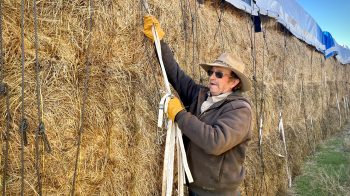Small banks struggle to pay off TARP funds
Share Now on:
Small banks struggle to pay off TARP funds
Tess Vigeland: Our financial acronym of the day is SIGTARP. It stands for Special Inspector General for the Troubled Asset Relief Program. A woman named Christy Romero writes this quarterly report to Congress on the progress of the 2008 bailout program, the TARP. It’s never a rosy read because it tends to run counter to the Treasury Department’s spin on the success of the bailout.
One part of today’s report caught our eye: Community banks are having trouble paying back their TARP funds. We asked our New York bureau chief Heidi Moore to find out why.
Heidi Moore: Glen Jamarron is the president of Alpine Banks, a group of 37 small banks in picturesque Western Colorado. He says he got into community banking for the community and not the banking. In 2009, TARP money helped Alpine Banks survive the real estate crisis.
Glen Jamarron: We were able to deal with bad loans, get ‘em cleaned up and move on to conducting good, new positive business and taking care of customers instead of dealing with problems.
Jamarron’s bank is now profitable. But he’s not rushing to pay back TARP just yet. He wants to keep growing his bank, maybe add new branches, and TARP is only charging him 5 percent interest on the loan. He’s not likely to find a deal like that elsewhere.
Moore: So it sounds like it’s an insurance policy for you.
Jamarron: To some degree. It allowed us to serve our customers and our communities no matter how bad things got.
A lot of community banks like Alpine haven’t yet paid back TARP, for the same reason: it’s hard for them to get money elsewhere.
Joshua Siegel started a firm, Stone Castle Partners, to invest in community banks. To wean small banks off TARP, there need to be more like him. But it’s a lot of work to put in a relatively small amount of money.
Joshua Siegel: The problem is for most large investors, $7 million or $8 million isn’t worth the time.
There’s another option for community banks. The government created a new program last year to encourage them to take longer-term loans. Ironically, a lot of the banks used those new loans to pay back TARP.
In New York, I’m Heidi Moore for Marketplace.
There’s a lot happening in the world. Through it all, Marketplace is here for you.
You rely on Marketplace to break down the world’s events and tell you how it affects you in a fact-based, approachable way. We rely on your financial support to keep making that possible.
Your donation today powers the independent journalism that you rely on. For just $5/month, you can help sustain Marketplace so we can keep reporting on the things that matter to you.


















